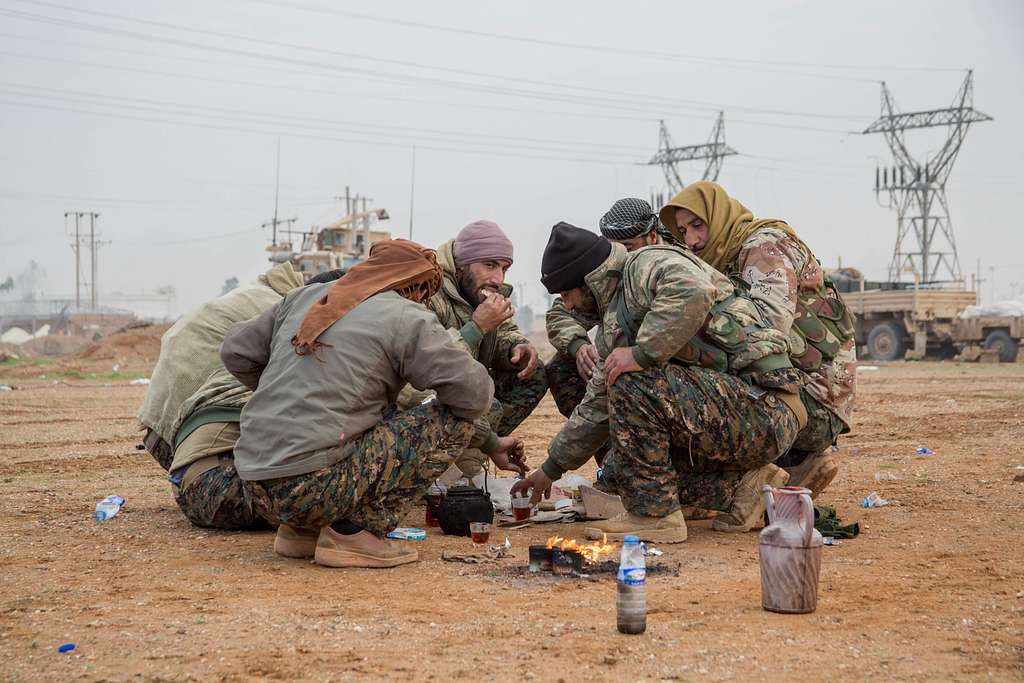Earlier this week, leaders of the SDF signaled a willingness to proceed with the integration of their forces into the national army of Syria, something which was agreed to back on March 10 but which has been stalled by persistent questions about federalization within post-war Syria.
SDF negotiator Fawza Youssef chimed in on the process here in comments to Turkish newspaper Ajansa Welat, suggesting that the actual integration of the Syrian Army could lead to a level of unity and representation for all people outside of its historic sectarian and ethnic divisions.
At the same time, Youssef suggested that a proper reconstruction with peace and stability would not be possible without a “fair democratic solution.” It is that difficulty that has left the Kurdish-dominated northeast of Syria pushing for decentralization, as it becomes increasingly clear that from the central government perspective, they effectively won’t have a seat at the table.

SDF soldiers gather for breakfast at a battle position in Deir Ezzor Governorate | Image is public domain from Picryl
Seizing power militarily in December, the Islamist Hayat Tahrir al-Sham (HTS) promised an “inclusive” central government, but since then policy has ensured that the HTS retains a virtual monopoly on state power. The “inclusive” cabinet from March included not a single Kurd, and provincial elections were “postponed” in Kurdish parts of the country as well, guaranteeing they’ll be heavily under-represented in parliament as well.
Bringing the SDF into the Syrian Army was seen as a way to “solve” the problem of Kurdish autonomy by effectively dismantling the armed faction that kept ISIS out of their territory for the past several years. From Turkey’s perspective, integration would speed development, and a strong central government without meaningful Kurdish representation is very much the draw here.
Turkey’s government has spent decades fighting with it’s own Kurdish minority, and has subsequently presented the SDF as “terrorists” in official statements. President Erdoğan sought to suggest the idea of a unified, albeit HTS-dominated, central government as the ideal for the region, and warned the SDF against “wrong paths,” while accusing the Israeli government of “incitement” of the SDF to try to undermine Syria’s territorial integrity.
What’s resulted is a “preliminary deal” to integrate the SDF into the Syrian Army and police, but the actual process still remains uncertain, as the political representation of the Kurdish northeast remains very much in doubt.


